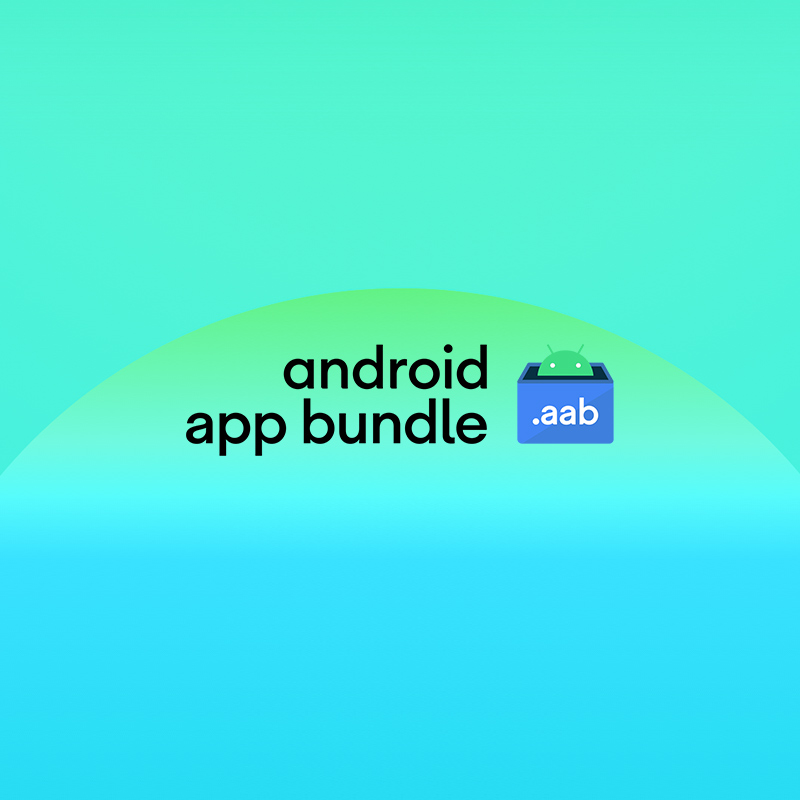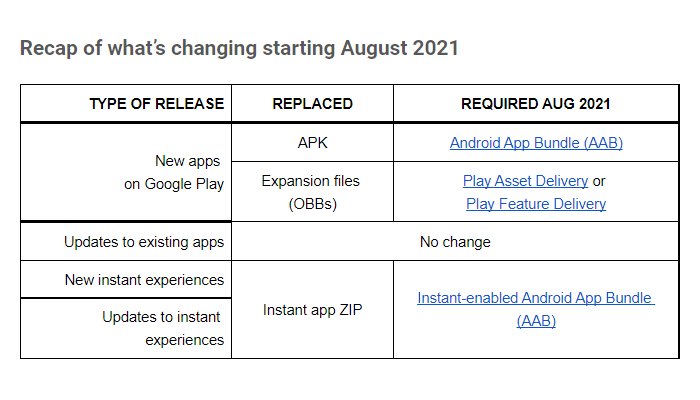
It was back in May of 2018 that Google introduced the Android App Bundle (AAB) format. And Google has bigger plans.
For as long as Android has been around, Android apps have been launched in the APK format (Android Package). However, in 2018, Google in introducing AAB, aims to bring benefits to more users, and focus on the more modern Android distribution that should also benefit all developers.
Seeing AAB a more capable format, Google Play wants to require all new apps to be published using AAB starting August 2021, as the company replace APK from Android's standard publishing format.
Google touted that this new format would result in smaller app file sizes and easier ways to control various aspects of apps.
What should be noted here is that, Android phones will still download apps as APKs, but the app bundles will create APKs that are optimized for users' specific devices.
AAB is more optimized, simply because the app bundles see Google Play take into account device configurations and languages.
APK files come with resources like layouts, images, audio, and so forth Basically, APKs have anything that isn’t code. All of those resources exist, no matter which device the APK file is installed on.
ABB on the other hand, has a better support for different display configurations and different languages, allowing developers to make multiple versions of the same resource that are used depending on the device and language.
In other words, ABB allows devices to download only what's needed.
In addition, AAB requires developers to replace large expansion files (OBBs) with Play Asset or Feature Delivery. And similarly, Instant-enabled Android App Bundles replace the Instant app ZIP for distributing new and updating “instant experiences.”
This way, AAB-distributed apps take up to 15% less space than universal APKs on average.
The requirement to use Android App Bundles only applies to new apps, according to Google. “Existing apps are currently exempt, as are private apps being published to managed Google Play users,” the company says. And if you’re a developer planning on releasing a new app, you only have a short time to make sure you’re using the new format.
As of the announcement, Google said that over 1 million apps are already using app bundles. They include the majority of the top 1,000 apps and games on the Play Store.

On the good side, ABB allows developers to have more control over how they distribute updates to apps, which will likely result in faster and more efficient app updates.
However, there are a some downsides.
For example, with ABB a mandatory on Google Play, app developers who want their apps to appear in other app store and channels outside the Google Play Store, are required to manually export APK versions of their apps. This is because other places other than the Google Play Store don't support App Bundles, at least at this time.
The next issue is that, developers must give Google their app signing key to export an AAB app as an APK. This gives Google quite a bit more control.
With the classic APK model of app distribution, Google cannot modify apps without changing the signature. If Google changes the signature, especially on a popular app, users are going to notice because the update won’t install. But with App Bundles and App Signing, Google could silently inject its own code into apps before distributing them.
The signature wouldn’t change because Google would own the signing key.
And also in the past, this ABB sparked controversies from developers who believed that Google was planning to killing APKs, eliminating sideloading, and hindering third-party app stores.
But in the end, users are the ones who are most likely to benefit.